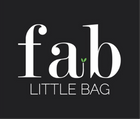
Tampons And Pads – But What Is In Them? By Charlotte Wilson
How much do you know about what is in your period products? Unlike manufacturers of food and cosmetics, period products are not legally required to disclose their ingredients. So, what are period products actually made from? And, if you don’t know what these products are made from, how can you find the best period products for you?
In this article, we will show you what is in the sanitary pads and tampons you use and the better ones to use for your body and menstrual cycle.
Do Period Products Have Chemicals In Them?
Chemicals such as pesticides, phthalates, and bisphenols have been found in many non-organic tampons and pads. The presence of chemicals is particularly concerning as these products are used in a sensitive and highly absorbent area of the body.
Luckily, if you want to avoid these potentially harmful chemicals altogether, there are other, more sustainable period alternatives to use during your menstrual cycle. For example, menstrual cups are made from medical grade silicon and organic tampons are primarily made from cotton. There are no chemicals, such as chlorine, fragrances or dyes, added within the manufacturing process.
What Chemicals Are In Pads And Tampons?
Despite the lack of listed ingredients within pads and tampons, studies have been able to identify chemicals frequently appearing within these products. In 2020, the ‘Toxic-Free Period’ report by Women Engage for a Common Future found that many big-brand, non-organic tampons and pads contained chemicals including pesticide residues, fragrances, plasticisers, and PFAs (short for per- and polyfluoroalkyl substances). Some of these chemicals are deliberately added and some are unwanted by-products from production. These chemicals have been linked to a range of health issues, including increased risk of certain cancers, hormonal disruption, high cholesterol, decreased fertility, and lowered effectiveness of the immune system. In 2023, the period underwear company Thinx was the subject of a lawsuit concerning their marketing campaign that led consumers to believe the underwear was free of chemicals when it actually contained PFAs.
Chemicals such as plasticisers (added to make materials softer and more flexible) and fragrances (added to make period products ‘smell nice’ but actually negatively affect the vagina’s pH balance) can also disrupt the endocrine system that is involved in regulating mood, growth, and reproduction issues.
It is important to remember that medical researchers have stressed that the presence of these chemicals in period products is unlikely to cause health issues. However, there remains a lack of research into just how harmful the presence of these chemicals in period products is to humans.
What Is Inside A Period Pad?
Each manufacturer may use slightly different materials, but the general ingredients bear notable similarities.
In a non-organic pad, plastic is included throughout the top layer, the backing, and internal layers of the pad. This pad is also likely to contain colouring, chemical fragrances, and emulsifiers. The presence of plastic also increases the negative impact caused by flushing pads polluting our waterways, hence why FabLittleBag is such a positive addition to your period kit, especially if you used to be a Flusher!! These are the risks causing huge problems in our waterways if not properly disposed of.
Organic pads, however, are made from organic cotton. Typically there is a compostable biofilm backsheet, a core made of wood pulp, and non-toxic glue. The packaging is often paper or compostable biofilm. The presence of chemicals in period products may be surprising and disconcerting but, fortunately, there are sustainable period products you can use to reduce your risk of exposure to these potentially harmful chemicals during menstruation. These include organic cotton tampons and pads, period underwear, and menstrual cups. Fab Little Bags, made from sugarcane and recycled materials with vegan glue, also do not contain any harmful chemicals and provide a safe and sustainable means of disposing period products.
By becoming more aware of the ingredients involved in making period products, it is easier to make an informed choice to find the best period products for you.
From your friendly fabber
Charlotte Wilson
